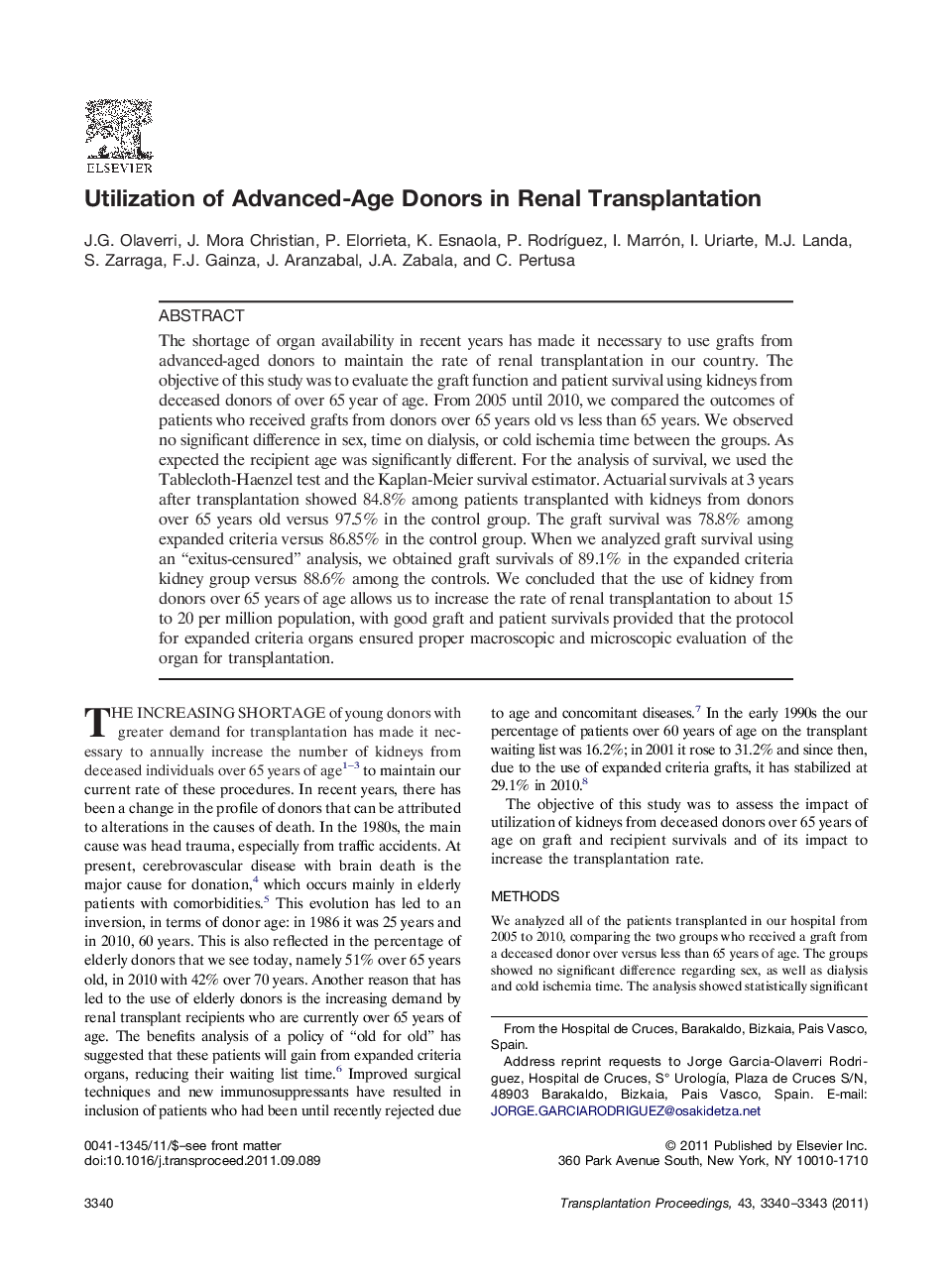| Article ID | Journal | Published Year | Pages | File Type |
|---|---|---|---|---|
| 4258592 | Transplantation Proceedings | 2011 | 4 Pages |
The shortage of organ availability in recent years has made it necessary to use grafts from advanced-aged donors to maintain the rate of renal transplantation in our country. The objective of this study was to evaluate the graft function and patient survival using kidneys from deceased donors of over 65 year of age. From 2005 until 2010, we compared the outcomes of patients who received grafts from donors over 65 years old vs less than 65 years. We observed no significant difference in sex, time on dialysis, or cold ischemia time between the groups. As expected the recipient age was significantly different. For the analysis of survival, we used the Tablecloth-Haenzel test and the Kaplan-Meier survival estimator. Actuarial survivals at 3 years after transplantation showed 84.8% among patients transplanted with kidneys from donors over 65 years old versus 97.5% in the control group. The graft survival was 78.8% among expanded criteria versus 86.85% in the control group. When we analyzed graft survival using an “exitus-censured” analysis, we obtained graft survivals of 89.1% in the expanded criteria kidney group versus 88.6% among the controls. We concluded that the use of kidney from donors over 65 years of age allows us to increase the rate of renal transplantation to about 15 to 20 per million population, with good graft and patient survivals provided that the protocol for expanded criteria organs ensured proper macroscopic and microscopic evaluation of the organ for transplantation.
